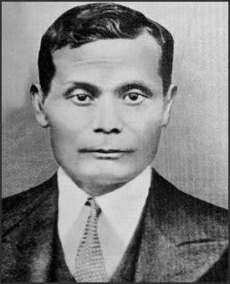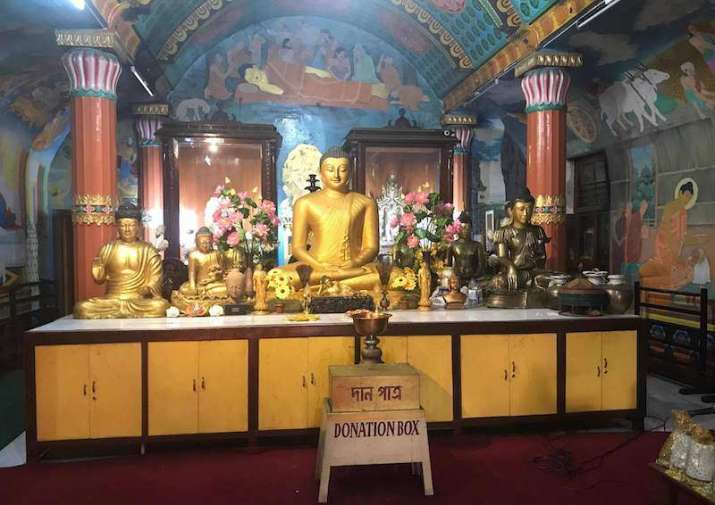Professor Benimadhab Barua (1888–1948), popularly known as B. M. Barua, was an indologist and educator who played a crucial role in the revival of Buddhism in Bengal. He was particularly well known for his research on ancient India’s history, heritage, and culture, and was also an international authority on Pali studies and archeology. Although he spent most of his time at the University of Calcutta as a professor of Pali, he was also involved with the departments of Sanskrit and Ancient Indian History and Culture.
Prof. Barua was born on 31 December 1888 in the village of Mahamuni Pahartali, in the Chittagong district of colonial Bengal (present-day Bangladesh). From an early age he demonstrated an aptitude for learning and an interest in the humanities. A prolific writer, he produced 19 books in English, seven books in Bengali, around 86 research articles in English, and approximately 22 articles in Bengali.
FEATURES|THEMES|People and Personalities
A Tribute to Benimadhab Barua: A Light to Bengali Buddhists
 Benimadhab Barua. From www.caluniv.ac.in
Benimadhab Barua. From www.caluniv.ac.inAfter completing primary school at his village in 1902, he was admitted into Chittagong School, for which he passed the entrance examination in 1906. He then passed the FA (Faculty of Arts) examination for Chittagong Government College in 1908. In 1911, he graduated from Baharampurr Krishnanath College (now in West Bengal, India) with honours in Pali. In 1913, he earned a first class MA in Pali at the University of Calcutta. In 1914, he traveled to England with the assistance of the late Venerable Kripasaran, the founder of the Bengal Buddhist Association, and the late Sir Ashutosh Mukherjee, then vice-chancellor of the University of Calcutta.
In 1917, Prof. Barua became the first South Asian to receive the degree of Doctor of Literature from the University of London. His thesis was titled “Indian Philosophy—Its Origin and Growth from the Vedas to the Buddha.” He was supervised by Prof. T. W. Rhys Davids, founder of the Pali Text Society, his wife C. A. F. Rhys Davids, Prof. F. W. Thomas, and Prof. L. D. Barnett. By now he was thoroughly exposed to the international stage of Buddhist studies, and the Indo-Pali emphases of the Anglo-German school of Buddhology.
Having received his degree, Prof. Barua returned to India and in December 1917 was appointed to the University of Calcutta, where he served as professor in the Department of Pali. He held different positions as an external examiner for various universities in Rangoon, Colombo, Dhaka, Bombay (now Mumbai), Allahabad, Benares (now Varanasi), and Lucknow. He was perhaps best known for his seminal volumes on Buddhism’s earliest centuries, which include: A Prolegomena to the History of Buddhist Philosophy (1918), The Ajivikas (1920), A History of Pre-Buddhistic Indian Philosophy (1921), Prakrit Dhammapada: A Critical Edition with Translation and Notes (1921), Gaya and Buddha Gaya: Early History of the Holy Land (Parts I and II) (1931 and 1934), Barhut Inscriptions of Ashoka, Part I: A Critical Edition of Text (1943), Inscriptions of Ashoka, Part II: Translations and Notes (1945), Studies in Buddhism (1947), and Philosophy of Progress (1948).
A History of Pre-Buddhistic Indian Philosophy was a revised and enlarged edition of his research work at the University of London. It was formative for many scholars and shaped an entire academic generation’s methodology on researching and teaching ancient Indian philosophy. Through this book, he gained fame and attention as a philosopher among Indian and overseas scholars. In this book, he analyzed the philosophy of the Vedas, Samhita, Aranyak, Upanishads, Mahabharata, Ramayana, and Pali and Prakrit literature, and the simultaneous Greek history-philosophy.
Sukumar Sen, a student of B. M. Barua and professor of Pali at the University of Calcutta, said about this book: “Benimadhab is considered to be a pioneer in the history of ancient Indian philosophy. It was not possible for any Indian scholar to publish this kind of book before Barua. Even if he did not write anything other than this book, he would already have been an author of exceptional pride among our scholarly circles. But in that case, we would not have been privy to the archaeological and historical scholarship by Benimadhab.” (Shimul 2018, 14; translated from Bengali by author).
 Shrine hall at the Mahabodhi Society of India, Kolkata. From justdial.com
Shrine hall at the Mahabodhi Society of India, Kolkata. From justdial.comProf. Barua’s understanding of Buddhism, much like that of the reformist Indians and Victorian Buddhologists, was realistic, rational, and scientific. A letter he sent from the University of London to Venerable Gunalankar in India on 5 April 1916 reveals an intensely humanistic and non-dogmatic approach to life:
“Do not be afraid of society's present state, because society is created by people. Before society existed, there was neither sin nor virtue. Sins come from society. Before the law was introduced, when someone stole, he would be asked, ‘Did you steal?’ and he would answer, ‘Yes, I stole because I had a lack.’ From the day when theft was dealt with as a crime, he would answer, ‘I did not steal.’ True, order is essential for civilization. But remember, society is not emancipation, it is just a path.
“Do not be afraid of anything other than your conscience. You are also human, I am also human. The differences between you and me are simply of degrees. Humanity matters more than abstract concerns about nature, fate, time, and so on. Humanity prevails over concerns about divinity, animalism, Brahma, and all else. Forget about differences between women and men. You cannot say that you are better than women, because there are many women in the world who are more virtuous and knowledgeable than men. Religion is all about your thoughts—your will.” (Shimul 2014, 386; translated from Bengali by author).
He passed away in Calcutta (now Kolkata), India, on 23 March 1948.
Although he was born in present-day Bangladesh, his education, work, and research was based in India. Scholars know him mostly for his writings but not for his phenomenal philanthropy for public causes that he did alongside his research. Therefore, a full biography of him is very much in order. The 69th anniversary of his death fell on 23 March this year. On the occasion of this anniversary, we pay homage to this distinguished educationalist who made a uniquely Bengali contribution to the fields of Buddhist studies and Indology.
References
Shimul Barua, ed. 2014. Indologist Acharya Dr. Benimadhab Barua Memorandum (in Bengali). Chittagong: Aniruddha Barua Ani Memorial Trust.
Shimul Barua. 2018. “The Grate Life and Work of Indologist Professor Dr. B.M. Barua” (in Bengali). Kolkata: Professor Benimadhab Barua Foundation.
Related features from Buddhistdoor Global
Buddhism – The Golden Heritage of Bengal
The Revival of Buddhism in Indo-Bangla Territory: A New Perspective
Jewel in the Crown: Bengal's Buddhist Revival in the 19th and 20th Centuries














